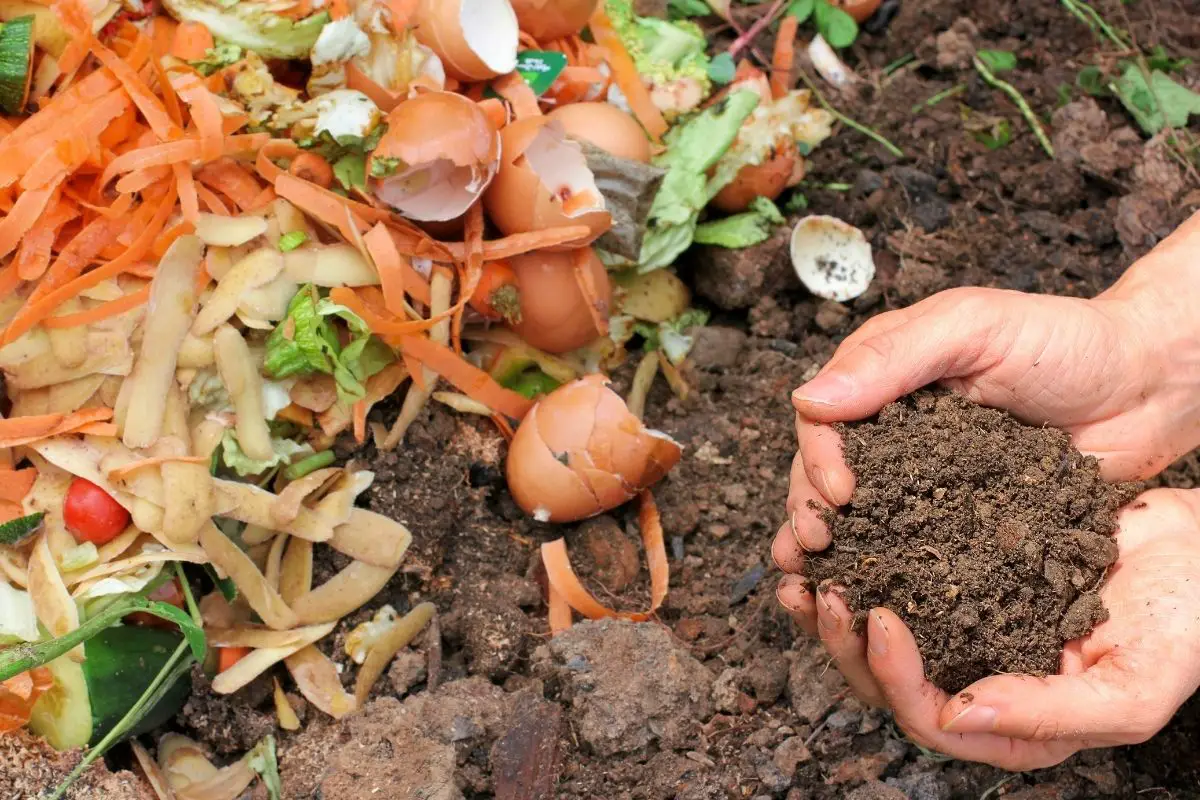What To Use Compost For | Composting Guide 2024
Despite being an avid composter, I am also a lazy gardener!
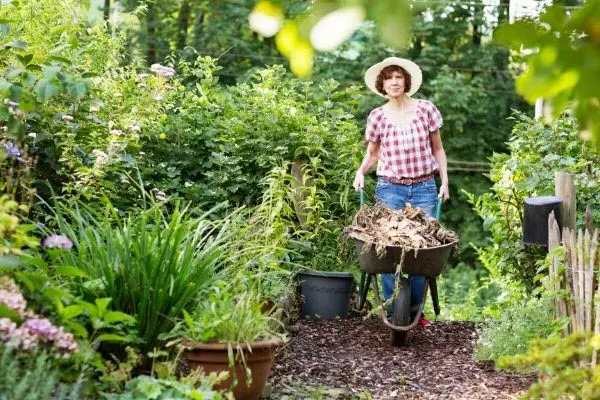
If you are anything like me, you’ve made your own wonderful organic compost pile, and you’ve been adding pencil shavings, bokashi scraps, guinea pig poo, and a vast amount of other organic matter which can help to make a nutrient-rich finished compost. The time comes when the bins are overflowing!
Now you might be wondering: what do you do with your finished compost? What should you use it for, and why is it so great?
In this piece, I’ll go through the most important reasons for using compost in your garden, and cover a few of the ways you can use your compost to keep your backyard, lawn, and plants happy and healthy.
Why Should You Use Compost In The Garden?
Builds Good Soil Structure
One of the great benefits of using garden compost is that it helps to create a good soil composition.
What this means is that its structure allows air and water to come and go easily, but there is always enough of each nutrient remaining to feed the garden plants which are living in the soil.
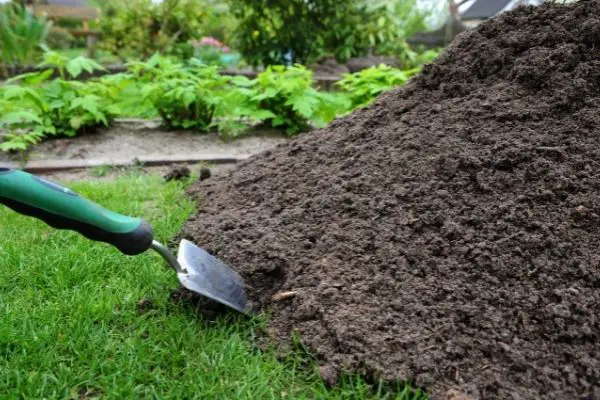
If your soil has a good structure, it will also encourage water to penetrate more deeply rather than simply running off the surface or shallow levels, which decreases soil erosion. You can think about compost as the ultimate soil conditioner and is the easiest way to improve the structure of your soil to help grow healthier plants in your garden beds.
Helps Soil Hold Nutrients
If you have a good soil composition, which can be achieved by using compost, it becomes easier for your soil to hold nutrients to feed your plants.
If your soil is of the right structure, it will hold in enough to prevent them from being washed away, but not too tightly so as to stop your plants from taking them up as needed.
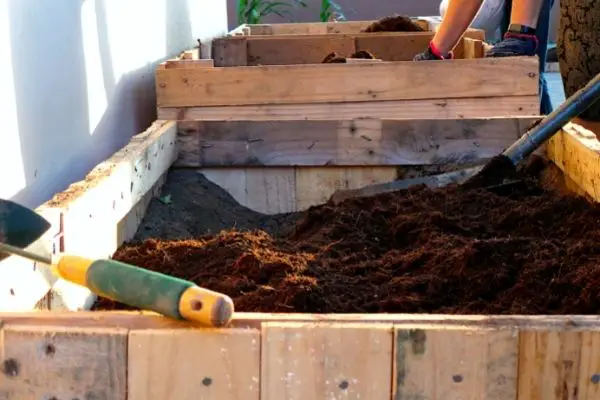
Adding compost to your garden beds will also ensure that nutrients are being released slowly, over months and even years, unlike synthetic fertilizers which release them very quickly. This helps to keep your soil full of nutrients for a long time, which is great for hungry plants.
Maintains a Neutral Soil pH
A pH level refers to how acidic or alkaline something is. Most plant life prefers a neutral pH environment, which means that ideally, you want your potting soil and garden beds to be of a neutral acidity.
All organic matter has the ability to act as a pH buffer, which means it will help your soil surface to maintain a neutral acidity level. If your soil is naturally very alkaline, and you need to lower the pH, you might need to use peat moss along with your compost, as compost is unlikely to shift your soil’s pH levels very much.
Feeds Worms
Natural finished compost provides worms that live in your garden with LOTS of organic matter to munch on as they tunnel around in your soil. But why would you want to feed worms, you ask?
Worms are part of a network of different organisms that live in your soil and turn refuse into nutrient-rich soil. They also play an important part in keeping a good soil construction. So, for happy and healthy plants, you need happy and healthy worms – and worms love to eat compost!
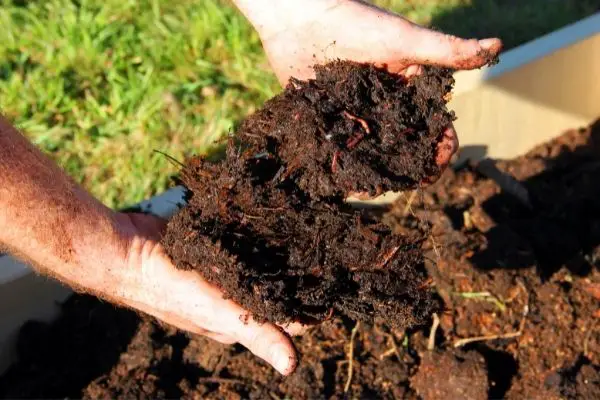
Protects Plants From Diseases
You’re probably aware now that finished compost is great at improving the structure of your soil, which in turn enables your plants to have access to ideal growing conditions with lots of nutrients, so they are as strong and healthy as possible. This gives them the best chance of being protected against any nasty diseases.
When in the presence of a disease-causing fungus, plants tend to react by producing chemicals that attempt to prevent infection from the fungus: sort of like a human immune system. If the plant is strong and healthy, it has a much better chance of detecting the fungus and fighting the disease.
Ways To Use Compost
Mulch
Mulch is a term that is used to describe any material that is put on top of the soil surrounding plants in order to help keep moisture in, and weeds out. Fresh compost can be used to make a great water-retaining mulch for your flower beds or vegetable garden.
You can use compost just like any other type of mulch: simply apply compost around your plants, trees, shrubs, and anything else you want to protect – there should be about 2-4 inches on the surface.
Just like any regular mulch, it will gradually break down over time as the compost decomposes, so you may want to add an extra layer every couple of months or so during the summer season.
Soil Amendment
One of the most common reasons people have for building their own compost pile or having a compost bin is to use it to carry out soil amendment. Soil amendment is a really important process for overall plant health for your potted plants as well as your flower beds. No matter what type of soil you have, adding soil amendments will help to improve it – and yes, even if you have clay soil or sandy soil!
To make potting soil with your own mature compost, you can use this standard mixing ratio:
Different soil types will require different application methods. You can find a handy guide here with specific instructions for different plant and soil types.
Compost Tea
Compost tea? No, it’s NOT a beverage! Compost tea refers to the liquid matter released by your compost bin. It works as an excellent leaf spray, drench and is great to add to houseplant water to promote healthy growth.
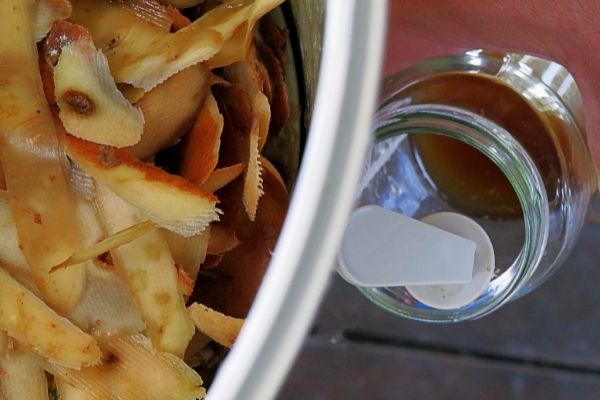
You can produce your own compost tea by putting compost into a strong burlap sack and showering it with a lot of water. Place a container under the sack to catch the drippings, and voila, you have your very own composted tea!
Lawn Top Dressing
It’s also possible to use compost on your garden lawn as a lawn top dressing, although you can’t apply it in quite the same way as you do on your plant beds. If you just dump a thick layer on top of your lawn and hope that it will just rot down, you’ll most likely find that you’ve killed your grass.
Instead, before carrying out compost application, use a garden fork to thoroughly spike your lawn. Then, spread a really thin layer over the entire lawn using a rake or a brush. Be careful not to use too much compost – you should still be able to see the grass underneath once you’re finished.
The best time to use compost as a lawn top dressing is in early spring, or at the end of the growing season.
Where To Use Compost: Inside or Outside?
Although we’ve mainly spoken about using compost in your outdoor beds or lawn, you can in fact use compost for your house plants too! Good compost is a nutrient-rich matter which is fantastic for making ALL plants grow regardless of if they are indoors or outdoors.
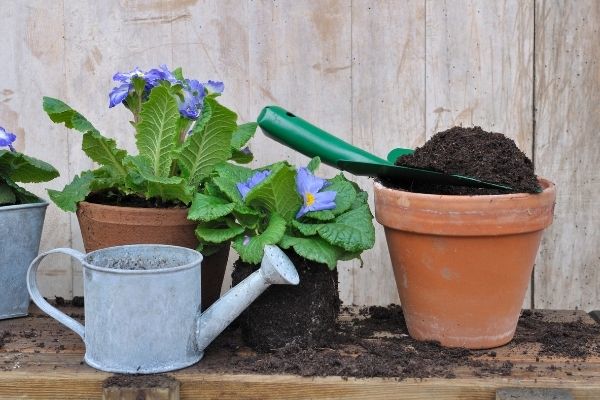
You can use compost to create great potting soil for your indoor plants: simply add compost as a top layer to your pots (about a 1-inch depth will do), so that when you water them the nutrients seep down into the soil. It’s easy to use compost both inside, and outside!
Frequently Asked Questions
What is the best way to use compost?
As discovered, there are many different ways you can use compost to improve the health of your soil, and in turn, grow happy and healthy plants. How you use your compost is totally up to you, and will depend on what you are trying to achieve.
For overall soil health, we would always recommend applying compost to amend your soil (but why not try using it as a lawn top dressing too!?)
Can I just put compost on top of soil?
This depends on the type of soil you have in your backyard. For most people, compost can be applied on top of the soil and mixed roughly with the first few layers, so as not to disturb the micro-life and organic matter which exist in your plant beds.
However, if you have soil that has a high proportion of clay or sand, you’ll be better off digging to mix in the compost fully.
When should you put compost on your garden?
For most soils, compost should be applied in Spring, just before most growth starts in your garden. In most countries, this is around March and April. If you miss this, however, an Autumn application can work well too (unless you have soil that is sandy). You can find a useful guide on when is best to add compost to your garden here.
Keep in mind that you should never use unfinished compost on your garden, or you’ll risk pulling nutrients away from the soil.
Should you use compost when planting?
If you regularly use compost in your garden and beds, you shouldn’t need to add any extra when planting your shrub – your soil will already contain all the nutrients needed by the plants!
However, if you’re growing particularly hungry plants, such as vegetables, or potting up plants, it might be worth adding some compost to ensure they get all the supplements they need to thrive.

